In the shadow of the 2008 Great Recession, six men from Oregon moved to Alaska in a high-stakes bid to strike it rich prospecting for gold.
Their story became the subject of “Gold Rush,” a popular reality television show on the Discovery Channel. Although the crew initially struggled to get their operation off the ground, just a few years later they were pulling in millions.
Like Alaska, Maine has some of the purest gold in the world hidden in the sediment of its streams. But local enthusiasts say that unlike operations out West, prospecting in the Pine Tree State isn’t about making money – the gold is pure, but there isn’t enough of it.
“It’s just the thrill of discovery,” said Darin Thomason of Winthrop, president of Central Maine Gold Prospectors. “I don’t think you could find one person that would ever sell the gold (if they found it).”
For many enthusiasts like Thomason, finding nuggets of gold in Maine is special not because of their worth, but because it happens so rarely. For that reason, many keep their precious finds in their own collections with notes about where and when it was found.
Nuggets are rare; small flecks of gold are far more common in Maine.
“It doesn’t compare to California, Nevada or Arizona,” he said. “But if it was easy, the thrill wouldn’t be there.”
While finding gold in Maine can be tricky, interest in the hobby has grown over the last 10 to 15 years, partly in response to a growing number of prospecting shows like “Gold Rush.”
Mark Folk of Fayette, vice president of Central Maine Gold Prospectors, said club membership is on the rise, with roughly 250 to 300 dues-paying members in Maine and New England. The club traces its origins back to the 1980s, he said.
It’s not uncommon for prospectors to walk away from a morning of panning with little to show for it, said Rosey Susbury of Byron, a third-generation prospector and the owner of Coos Canyon Rock & Gift.
“(Gold) isn’t easy to find,” she said. “You have to stick with it. Most people don’t find it their first or maybe even their second time out. But as they start to understand what they’re doing, they do find gold.”
And when they find gold, they get hooked, she added.
“The part I like is you’re the first person to ever see that gold,” said Carl Miller of Augusta.
Prospecting is both a social and an introspective hobby. Many enjoy going out in groups, but nearly all have special spots they keep to themselves.
The joy of the hobby comes not just from finding gold, but in exploring the Maine wilderness and enjoying the natural world.
Susbury compared the hobby to fishing, adding that no one expects recreational fishermen to bring home $100 worth of fish.
“It’s therapeutic, it’s fun, it’s treasure hunting,” she said. “You never know if you’re gonna find something. And even if you don’t, you still had a great day on the river.”

Rosey Susbury gives a demonstration on panning for gold at her store, Coos Canyon Rock & Gift. In addition to teaching visitors how to pan for gold, she sells small containers of “Paydirt,” which contains a few cups of gravels and serval small pieces of gold. Andree Kehn/Sun Journal
THERE’S A SCIENCE TO IT
There are various ways to prospect for gold, but the most basic method involves using a shovel to lift sediment from a stream bed and dump it in a pan. Larger rocks are sorted out, often with the help of a classifying screen, leaving the finer sediment behind.
Completely submerged in water, the sediment is then shuffled around to separate the light and heavy particles. Gold is especially dense, meaning it will quickly sink to the bottom of the pan.
Prospectors rid their pan of the lighter particles, then sift through the heavier sediment in search of the gold’s characteristic shine. Some may add a sluice box to the process, which uses a stream’s natural flow and a series of ridges to help sort out gold.
Serious prospectors sometimes employ motorized equipment, like dredges and hard bankers. The first sucks up sediment from the streambed like an underwater vacuum and runs it through a sluice box; the latter simply pumps water into a sluice box, improving its ability to sort through material.
Gold can be found anywhere in Maine, but some places offer better prospects than others.
“We’re looking for those places (where gold) has been collecting for thousands of years,” Folk said.
According to the Maine Geologic Survey, gold settled in stream beds after being eroded from bedrock by glaciers. While gold is still present in bedrock, most of the gold found in Maine is recovered from the dirt.
There’s a science to selecting the best spots, Folk explained.
Generally, he searches for gold on the inside of a stream bend where the water flow is the weakest. Gold is “lazy,” he said, adding that it often takes the shortest route in the stream. Due to its density, gold will quickly settle in slow-moving water.
A stream pinched between mountains can also be a good place because it’s less likely that the stream has moved much since the glaciers retreated from Maine 10,000 years ago, he added. Searching out locations with garnet and magmatite, too, is often a good bet because these minerals were originally found in the same bedrock that held gold.
Generally, it’s most advantageous for prospectors to target deeper sediments, particularly those resting just above bedrock or a clay layer, Thomason said. Because it’s so heavy, gold will sink through sediment until it can sink no further.
“That’s generally where the best gold finds are,” he said.
Some of the biggest, purest chunks of gold in Maine have been found in the East Branch of the Swift River in Byron. But gold can reliably be found in just about any stream between Rumford and Jackman, Wayne Gelston of Raymond said.
Susbury’s husband, Bob, once spent five years prospecting in a particularly lucrative spot on the East Branch – in an undisclosed location, of course – finding numerous gold nuggets for their collection.
“You never know,” she said. “When you find a nugget, it’s pretty darn exciting. You may not find one ever. But when you do find one, it’s (like winning the lottery).”
Like Thomason, neither Susbury nor her husband sell their best finds. Instead, Susbury proudly wears some of it as jewelry, a gold nugget necklace with personal significance and a ring made from Swift River gold.
Susbury’s Byron shop is a haven for novice and veteran prospectors alike. People often stop by her store to weigh their finds and chat about the hobby.
But, Susbury warns folks not to believe every tale they hear. A sign in front of the store proclaims “Gold bought, sold and lied about here!”
In early June, the going rate for gold was about $1,950 an ounce, Susbury said. Most prospectors will never find a single piece near that size in Maine, she said.

Wayne Gelston empties his sluice box while prospecting recently in the Carrabassett River in New Portland. Russ Dillingham/Sun Journal
CENTRAL MAINE GOLD PROSPECTORS GATHER
Prospectors acknowledge that some groups are concerned about the hobby’s environmental impact in streams, especially when motorized prospecting equipment is used. They said that prospectors are careful to clean up when they’re finished and leave the stream the way they found it.
“We certainly want to be great stewards to the environment because we don’t want to do anything that forces landowners to shut out the hobby,” Thomason said. “We’re very concerned about that all the time.”
If a hole is left unfilled, it takes just one heavy rain for streams to redistribute the sediment, Folk said.
“We’re the only people who like a flood,” he joked, adding that the movement helps turn sediment over and refresh the stream bed.
Ultimately, the hobby is what you make of it. Liza Folk of Fayette said it’s possible to purchase a pan and shovel for $20 and have a grand time searching for gold. Serious enthusiasts however can spend hundreds or thousands of dollars acquiring specialized equipment.
Some prospectors including Thomason even spend their vacations traveling to gold camps in Alaska or other states out West in search of larger finds.
Those looking to try their hand at prospecting have several options. The Central Maine Gold Prospectors hold gatherings on the third Saturday every month, offering lessons and equipment for newcomers to borrow, free of charge. The most recent outing in June drew several dozen children and adults, despite a full day of rain.
The next gathering is planned for July 15 on Chandler Mill Stream, west of Madrid near Smalls Falls. More details regarding the monthly gatherings are available on their Facebook page.
Coos Canyon Rock & Gift also has prospecting equipment for sale and rent. Susbury, too, provides demonstrations of the equipment.
Permits are generally not required in Maine, however prospectors must stick to public land or receive permission from private landowners. A free permit is required only in the White Mountain National Forest of western Maine. Motorized recreational gold prospecting equipment has additional restrictions.
Copy the Story LinkSend questions/comments to the editors.


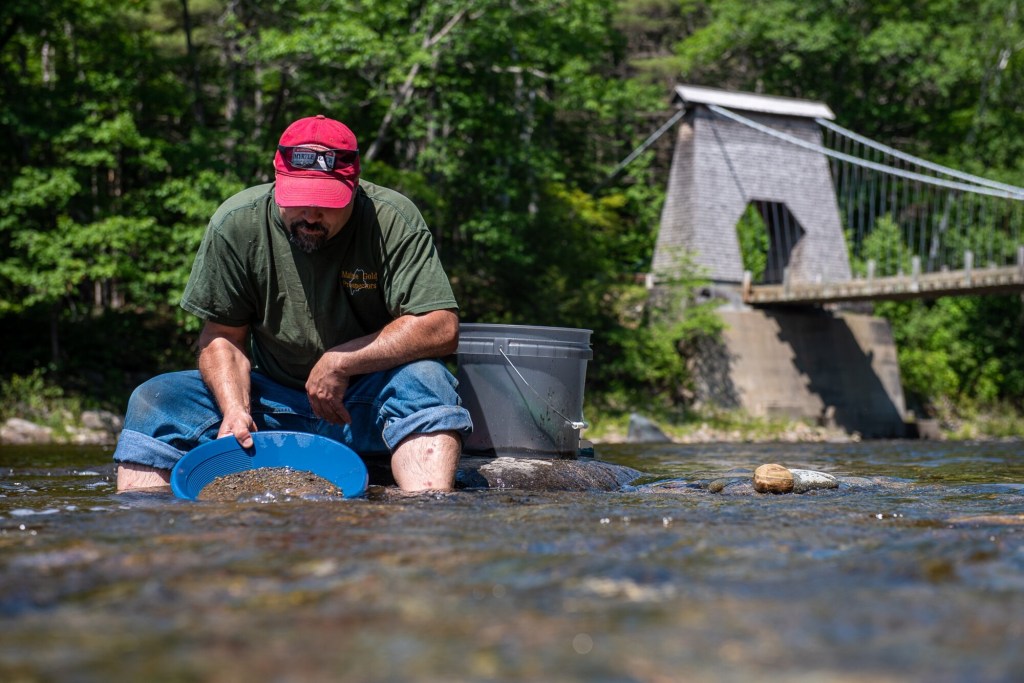
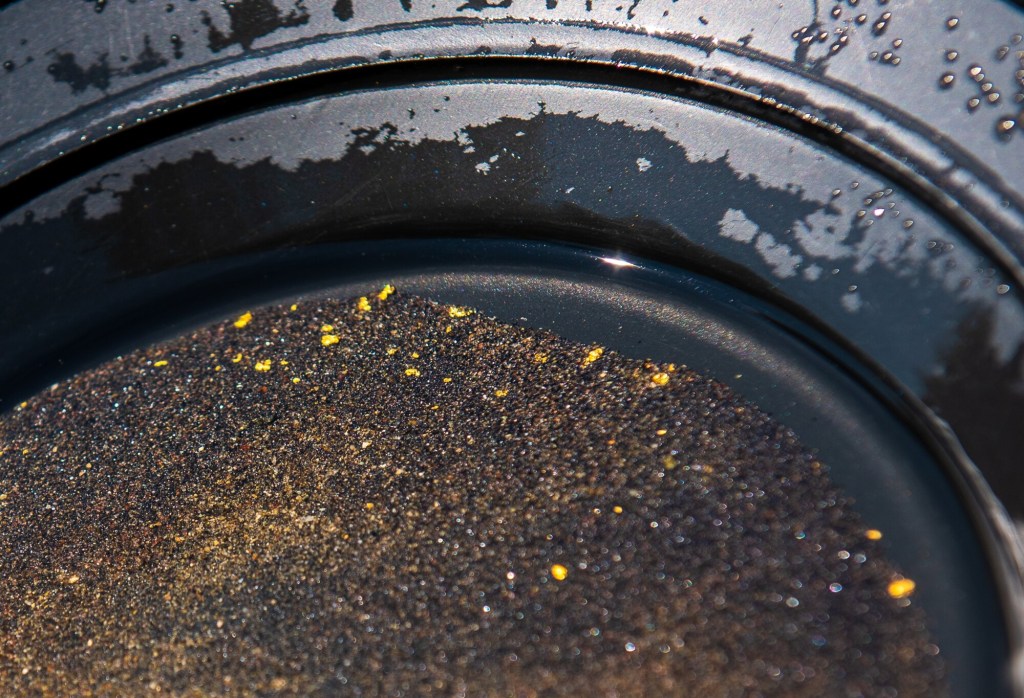
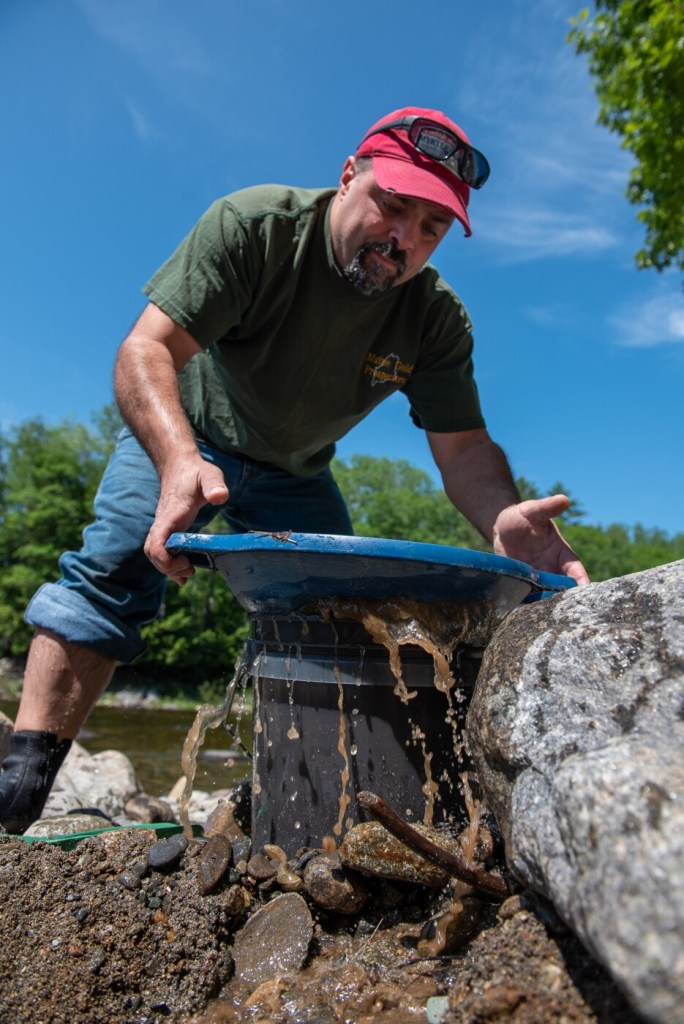
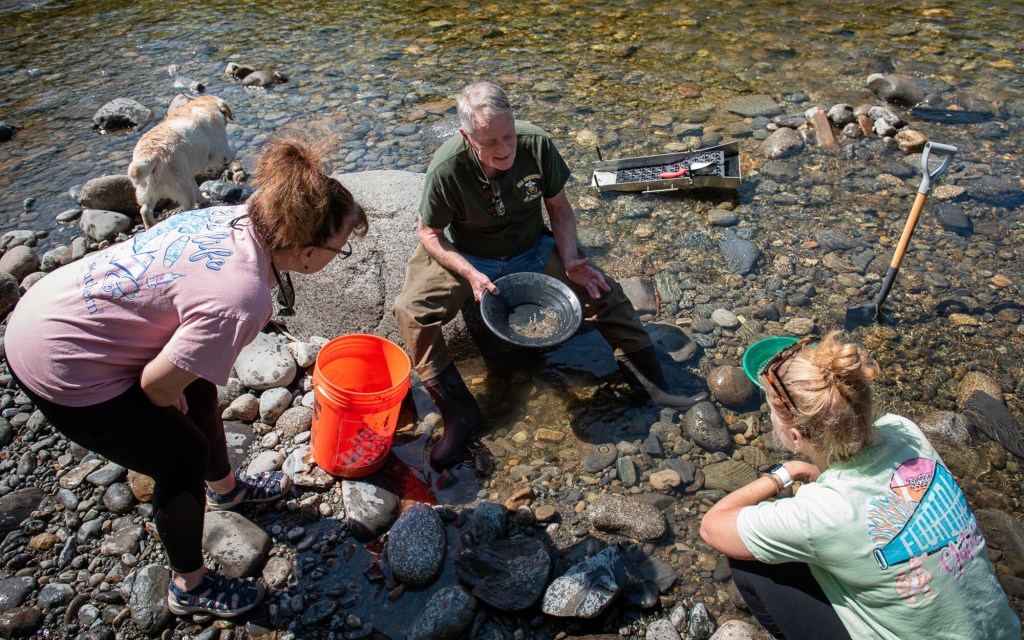
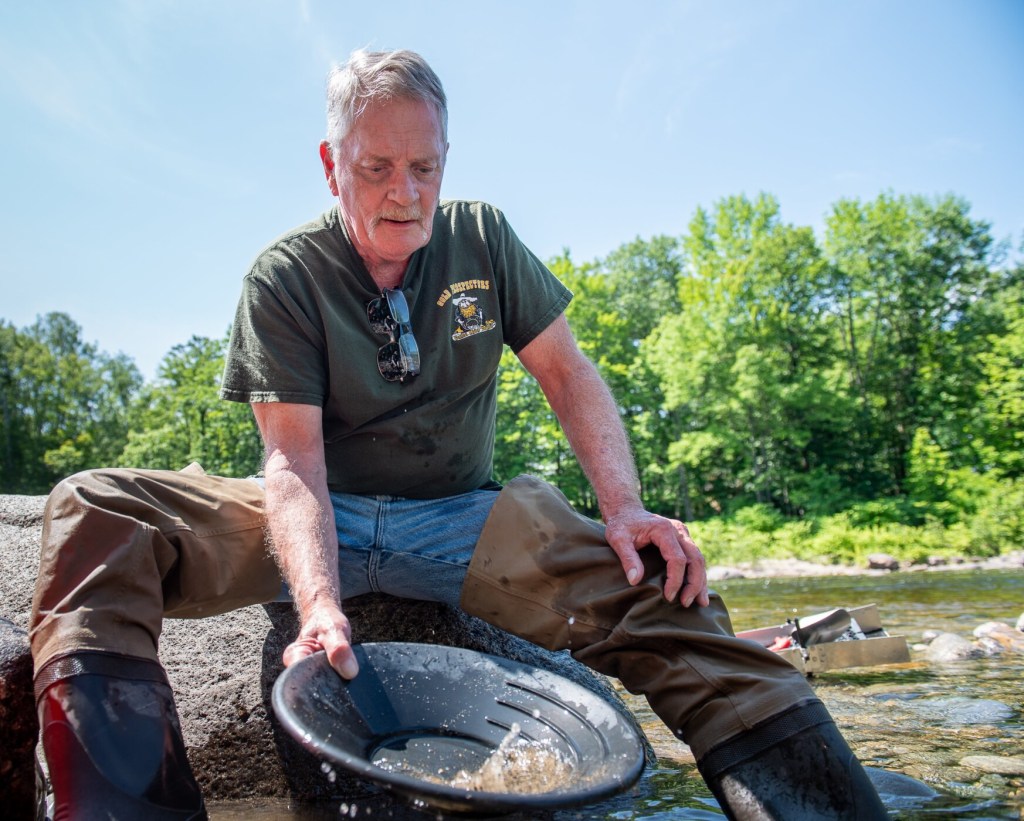
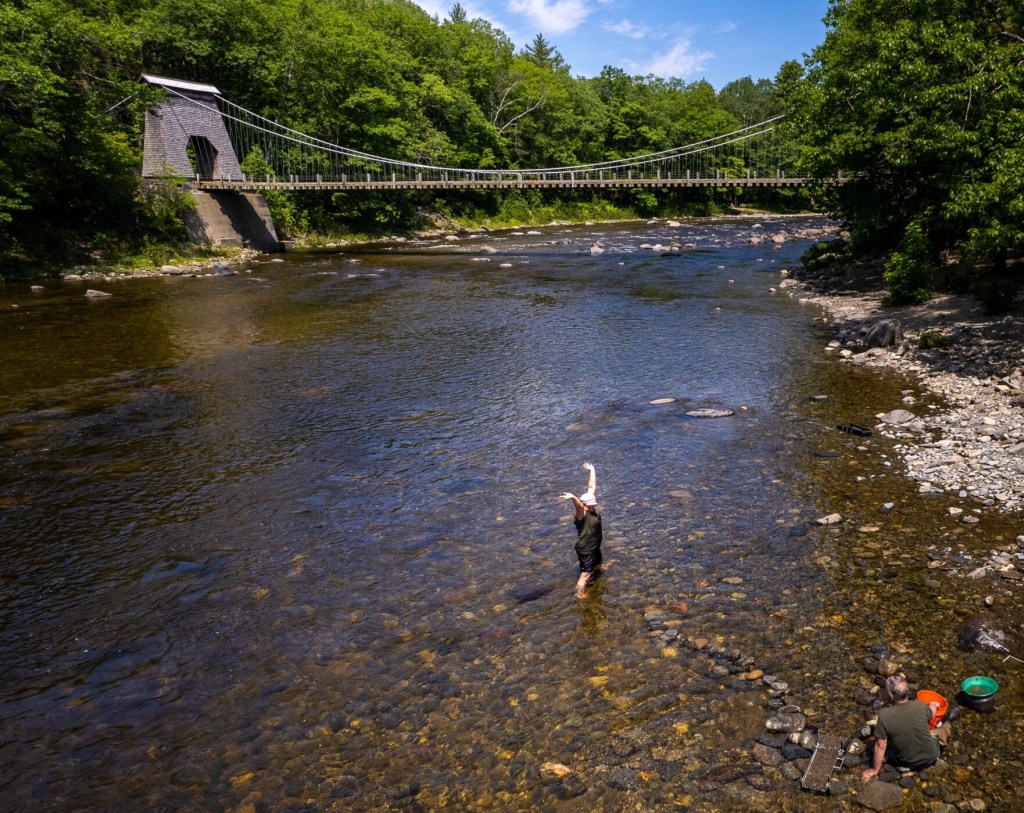
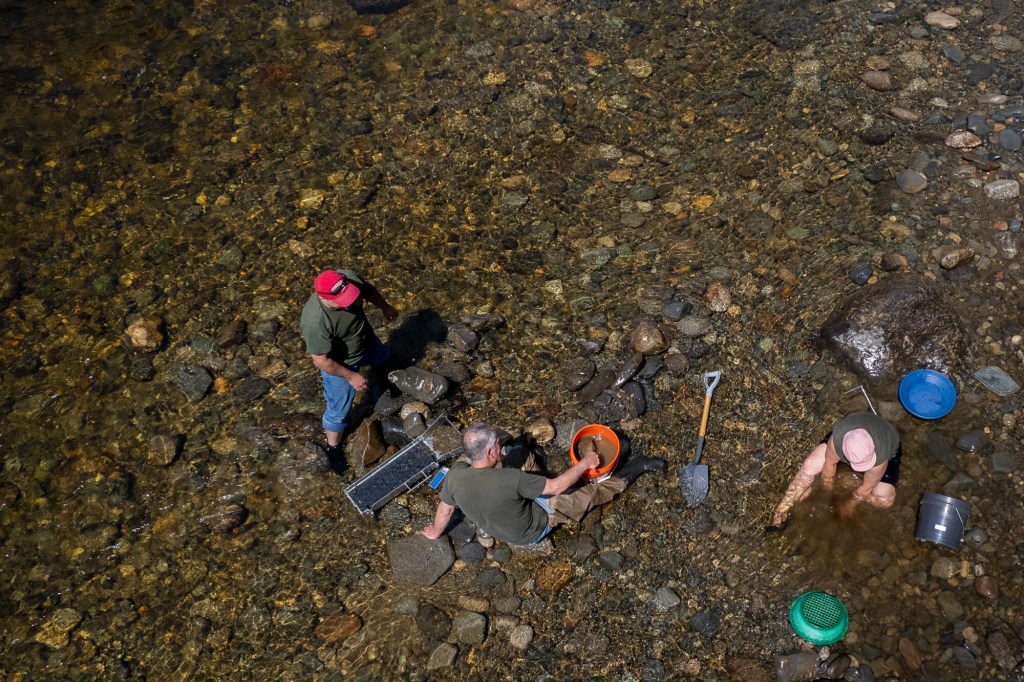
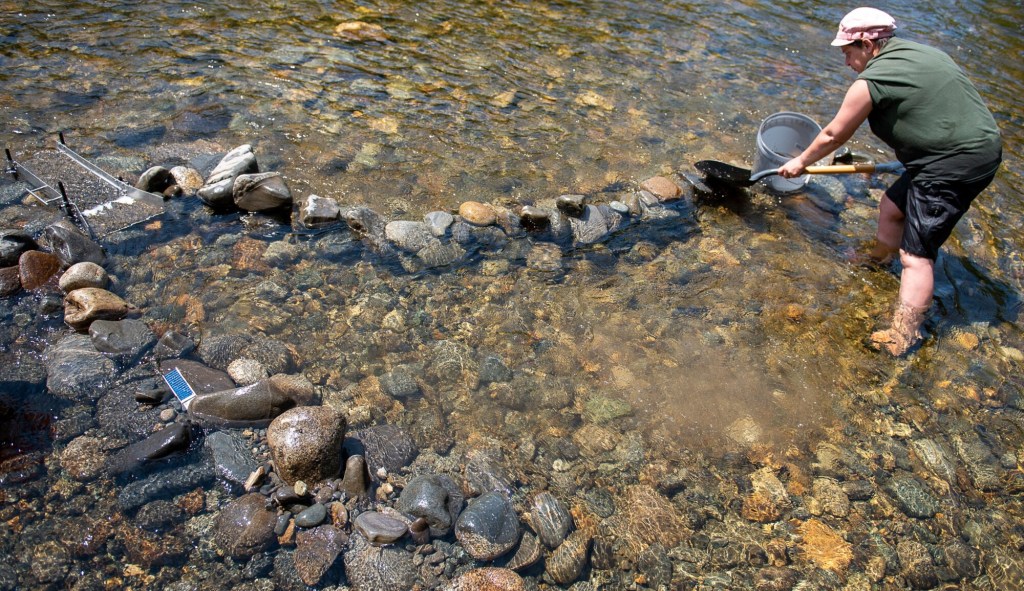
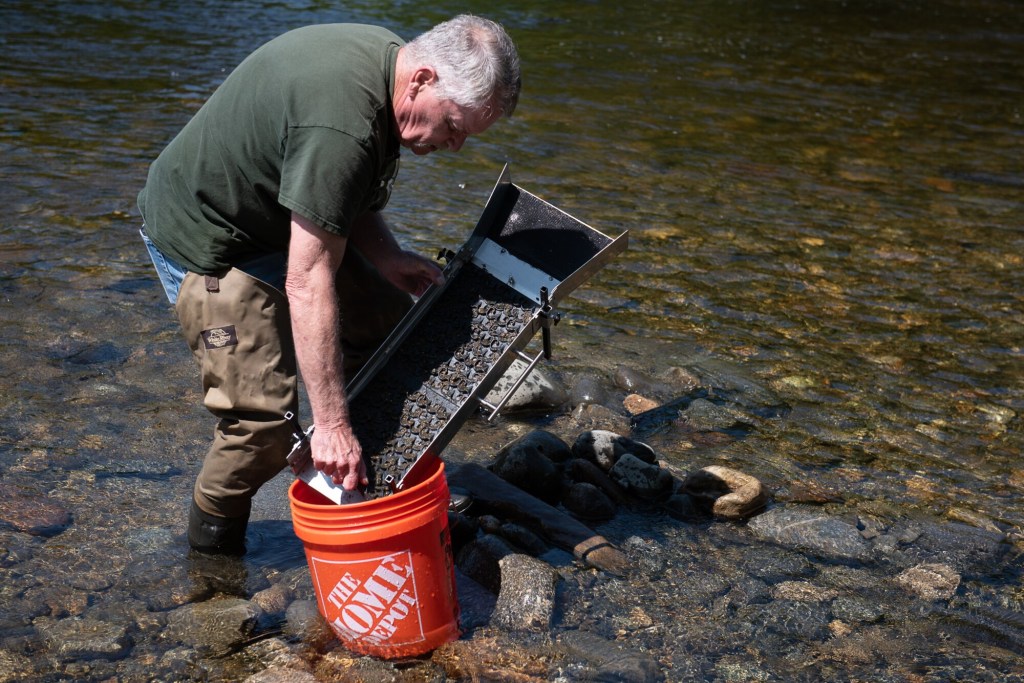
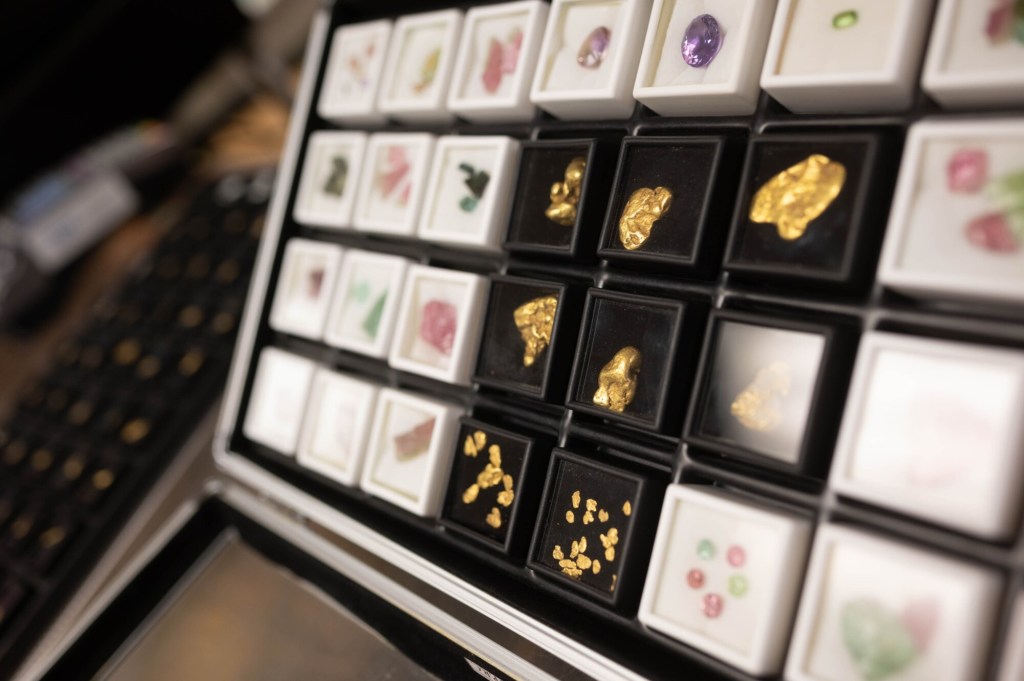
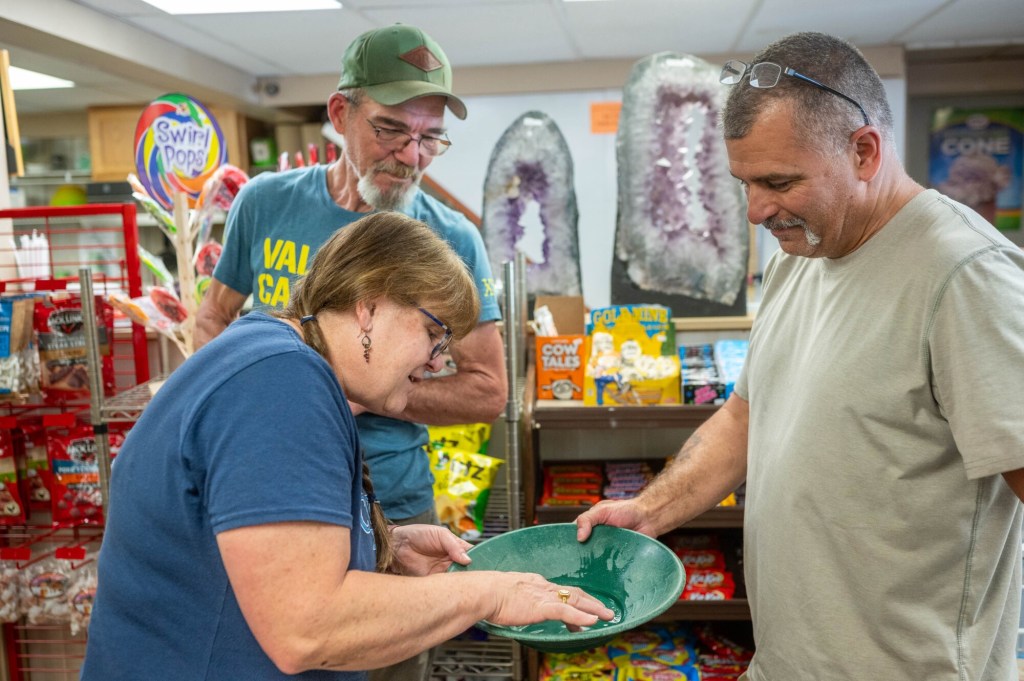
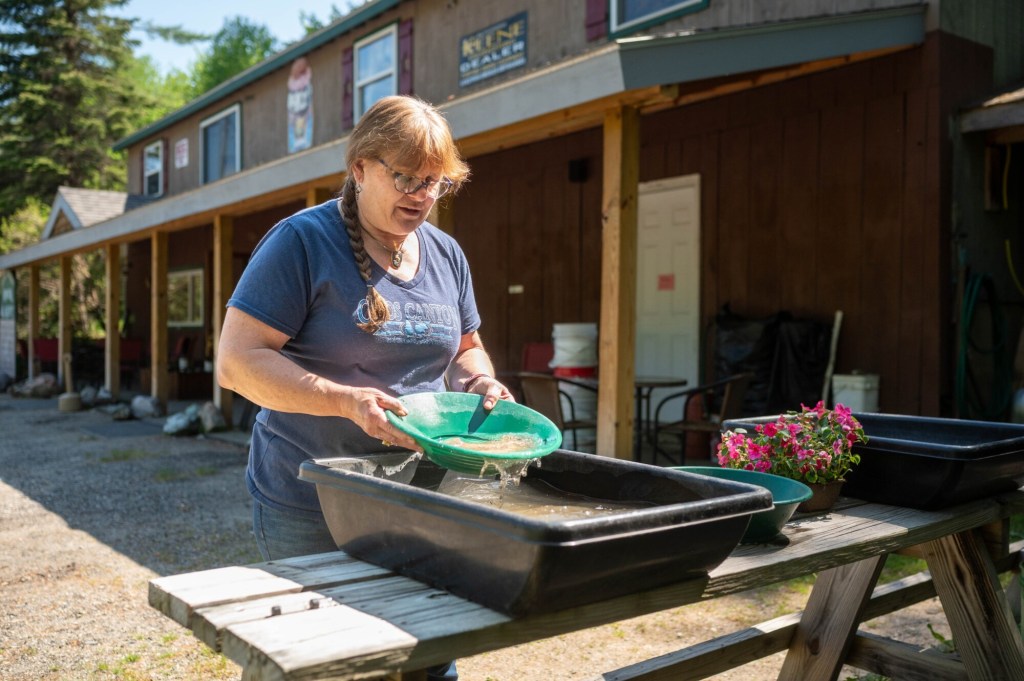

Success. Please wait for the page to reload. If the page does not reload within 5 seconds, please refresh the page.
Enter your email and password to access comments.
Hi, to comment on stories you must . This profile is in addition to your subscription and website login.
Already have a commenting profile? .
Invalid username/password.
Please check your email to confirm and complete your registration.
Only subscribers are eligible to post comments. Please subscribe or login first for digital access. Here’s why.
Use the form below to reset your password. When you've submitted your account email, we will send an email with a reset code.